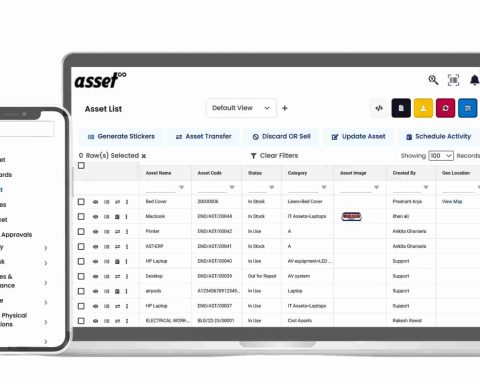Welcome to our guide on understanding severance pay. If you find yourself facing a termination from your employment, it’s important to know your rights and entitlements regarding severance pay. This is a crucial aspect of ensuring a fair and smooth transition during this challenging time. In this article, we will provide you with valuable tips and insights into navigating the severance pay in Alberta, its process and understanding the benefits you may be entitled to.
Key Takeaways:
- Severance pay is a financial compensation given to employees when they are terminated from their job.
- Understanding severance pay is essential to protect your rights and ensure you receive fair treatment.
- The eligibility criteria for severance pay may vary based on factors such as employment agreements and length of service.
- Reviewing and negotiating employment agreements can help you secure better severance pay entitlements.
- It is important to seek legal advice or consult with professionals if you have concerns about your severance pay.
What is Severance Pay?
Severance pay is a type of compensation provided to employees who are terminated from their employment. It serves multiple purposes, both for the employee and the employer, and includes various benefits.
When an employee is terminated, severance pay helps to mitigate the impact of sudden job loss by providing financial support during the transition period. It allows employees to cover their living expenses and seek new employment opportunities without facing immediate financial strain.
One of the key benefits of severance pay is that it recognizes an employee’s contribution and loyalty to the company. It acknowledges the length of service an employee has provided and provides a form of recognition and support for their past efforts.
The amount of severance pay an employee receives can vary based on several factors. These may include the length of their service with the company, their job position, their salary or wage, and the specific policies and agreements in place within the organization.
Severance pay is not just a financial benefit; it also offers other advantages to employees. It may include extended healthcare coverage or assistance with job placement services, which can help individuals transition to new employment more smoothly.
Overall, severance pay serves as a means of providing financial security, acknowledging employee loyalty, and easing the transition into new employment for terminated employees.*
Eligibility for Severance Pay
Receiving severance pay is contingent upon meeting specific eligibility criteria that vary depending on the circumstances surrounding an employee’s departure from a company. Understanding these requirements is crucial to determine if you qualify for severance pay and the amount you are entitled to receive.
One common criterion for qualifying for severance pay is being laid off due to no fault of your own. In such cases, organizations often provide severance packages to employees as a way to ease the financial burden of sudden job loss and ensure a smooth transition to new employment. However, it is important to note that not all layoffs automatically guarantee severance pay, as it is subject to company policies, internal procedures, and legal regulations.
Another crucial factor determining eligibility for severance pay is the presence of a valid employment agreement. Individuals who have negotiated and signed an employment agreement that includes provisions for severance pay may be entitled to receive a specified amount upon termination. It is essential to carefully review and understand the terms and conditions outlined in the employment agreement to ensure that your rights are protected and you receive fair severance pay.
Negotiating Employment Agreements for Fair Severance Pay Entitlements
When entering into employment agreements, it is vital to approach the negotiation process with careful consideration and seek legal counsel if necessary. By doing so, employees can ensure that their agreements include fair severance pay entitlements. Negotiating the terms of an employment agreement can help establish clear guidelines for severance pay calculation, duration, and any additional benefits.
In addition, employees should advocate for provisions that allow reevaluation of severance pay in the event of contract expiration or job termination. This proactive approach empowers individuals to protect their financial well-being and secure appropriate compensation should their employment circumstances change.
It is worth noting that severance pay eligibility and entitlements can be influenced by local labor laws, industry standards, and the size of the organization. Before signing any employment agreement, consulting with a legal professional experienced in labor and employment matters can provide valuable insights and guidance to ensure fair treatment and a satisfactory severance package.
| Eligibility Criteria for Severance Pay | Qualifying for Severance Pay | Employment Agreements |
| Laid off due to no fault of your ownMeeting specific company policiesComplying with legal regulations | Reviewing and understanding severance pay termsNegotiating employment agreements to include fair severance pay entitlementsSeeking legal counsel if necessary | Signing a valid employment agreementIncluding provisions for severance payAdvocating for contractual reevaluation |
Tips for Understanding Severance Pay
When it comes to severance pay, it’s important to fully understand the terms and conditions outlined in your employment contract. Carefully reviewing these terms can help you make informed decisions about your entitlements. Take the time to go through the contract and familiarize yourself with the specific provisions related to severance pay. Pay attention to factors such as the amount of severance pay you are entitled to, the circumstances under which it will be paid, and any requirements or conditions that must be met.
In order to maximize your severance pay, consider negotiating with your employer. If you believe that the initial offer does not reflect your contributions to the company or the value you bring, don’t be afraid to discuss this with your employer. Highlight your achievements, length of service, and any unique skills or qualifications that set you apart. By presenting a well-reasoned case, you may be able to secure a higher severance package.
Seeking legal advice is another important step in understanding and protecting your severance pay entitlements. An employment lawyer can help you navigate the legal complexities and ensure that you receive fair treatment. They can review your employment contract, assess your rights, and provide guidance on the best course of action. Remember, having an experienced professional on your side can make a significant difference in the outcome of your severance negotiations.
FAQ
What is severance pay and why is it provided to employees?
Severance pay is a form of compensation provided to employees who are terminated from their jobs. It is typically given as a financial package that helps employees transition between jobs and cover their expenses during the job search period. Severance pay is offered by employers as a gesture of goodwill and to provide support to employees who are leaving the company.
How is the amount of severance pay determined?
The amount of severance pay an employee receives can vary based on a variety of factors. Some common factors that impact the amount of severance pay include the length of service with the company, the employee’s salary or wage rate, and any company policies or agreements in place. It is important for employees to review their employment contracts or consult with HR to understand the specific terms and conditions related to severance pay.
Who is eligible for severance pay?
Eligibility for severance pay varies based on several factors. In general, employees who are laid off or terminated without cause are typically eligible for severance pay. However, it is important to note that not all employees are entitled to severance pay. Temporary or seasonal employees, independent contractors, and employees who resign voluntarily may not be eligible. Additionally, eligibility may be outlined in employment agreements or specific company policies.
How can individuals maximize their severance pay?
To maximize severance pay, individuals can take certain steps. First, it is important to carefully review the terms of the severance package and seek clarification if needed. Understanding what is included in the package and what rights individuals have is crucial. Additionally, individuals can negotiate with their employers to reach a fair and satisfactory agreement. Seeking legal advice or consulting with professionals who specialize in labor or employment law can also help individuals navigate the process and ensure they receive fair treatment.






